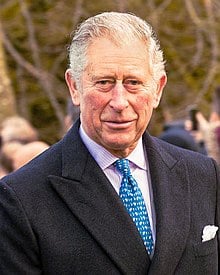The Many Millions from the Duchy of Cornwall Properly Belong Not to Prince Charles but to the British People

A duchy is a medieval country, territory, fief, or domain ruled by a duke or duchess, a high-ranking nobleman hierarchically second to the king or queen in what is now a defunct European tradition.
The Duchy of Cornwall was created with the express purpose of providing income to the heir apparent to the throne; however, the terms of the original creation limit the title Duke of Cornwall to the eldest son of the monarch if and only if that son is also the heir-apparent; since 2015, the eldest child (regardless of sex) of the monarch would usually be her heir-apparent, but no change has been made to allow an eldest daughter to take the title Duke of Cornwall. The Duke of Cornwall has the ‘interest in possession’ of the duchy’s assets (such as estates) which means they enjoy its net income, do not have its outright ownership and do not have the right to sell capital assets for their own benefit.
The Duchy is a private estate established by Edward III in 1337. The revenues from the estate are passed to HRH The Prince of Wales and Duke of Cornwall, who chooses to use them to fund his public, charitable and private activities and those of his family.
Prince Charles’s net worth is now estimated between $100 million and $400 million. Most of his wealth stems from the medieval estate of the Duchy of Cornwall which consists of valuable land, commercial and residential property and other substantial financial assets.
However, the Duchy of Cornwall is, astonishingly, exempt from all capital gains tax, income tax and corporation tax as the government has considered the duchy to be a ‘Crown’ body. This tax position has been previously challenged by various politicians who have asked HM Revenue and Customs to investigate why the duchy should be exempt from tax.
The principal activity of the duchy is the management of its land holdings in England of an estimated 135,000 acres or 550 km2. However, it is also involved in substantial retail and commercial activities. The majority of the estate lies outside Cornwall, with half being on Dartmoor in Devon, with other large holdings in Herefordshire, Somerset and almost all of the Isles of Scilly. The duchy also has a portfolio of financial investments.
In addition, the duchy has special legal rights, such as the rules on bona vacantia. This right to ownerless property operates in favour of the duchy rather than the Crown, such that the property of anyone who dies in the county of Cornwall without a will or identifiable heirs, and assets belonging to dissolved companies whose registered office was in Cornwall, pass to the duchy.
The proposition that one individual should be gratuitously entitled to millions of pounds annually in income from land and estates that properly are part and parcel of the common land assets of England, being within the ownership of all the citizens of the United Kingdom, is no longer tenable. The lands and estates that today comprise the Duchy of Cornwall, were never sold and never bought. If anything, they were ‘acquired’ by a former ‘ruler’ in mediaeval times for the benefit of his son. That ‘transaction’ for which there was no consideration would now be considered null and void. Just as Rhodesia is no longer owned by the family of Cecil Rhodes or the Crown, so all the land in Cornwall and elsewhere in Britain that were previously designated ‘Crown Property’ should now revert back to the people of Britain for their use, enjoyment and profit.
Rhodes, colonialism and the grabbing of land and property by powerful war lords – subsequently transmogrified into ‘royalty’, is an anachronism now largely remedied in most parts of Europe and the wider world.
None of the foregoing detracts from the fact that Elizabeth ll has proved to be an admirable public servant for very many decades. However, the tradition of subservience and royal prerogative is now well past its sell-by date particularly as there is no other member of the House of Windsor even remotely qualified to be a head of state – or, in truth, head of anything else.
*
Note to readers: please click the share buttons above or below. Forward this article to your email lists. Crosspost on your blog site, internet forums. etc.
Hans Stehling (pen name) is an analyst based in the UK. He is a frequent contributor to Global Research.

